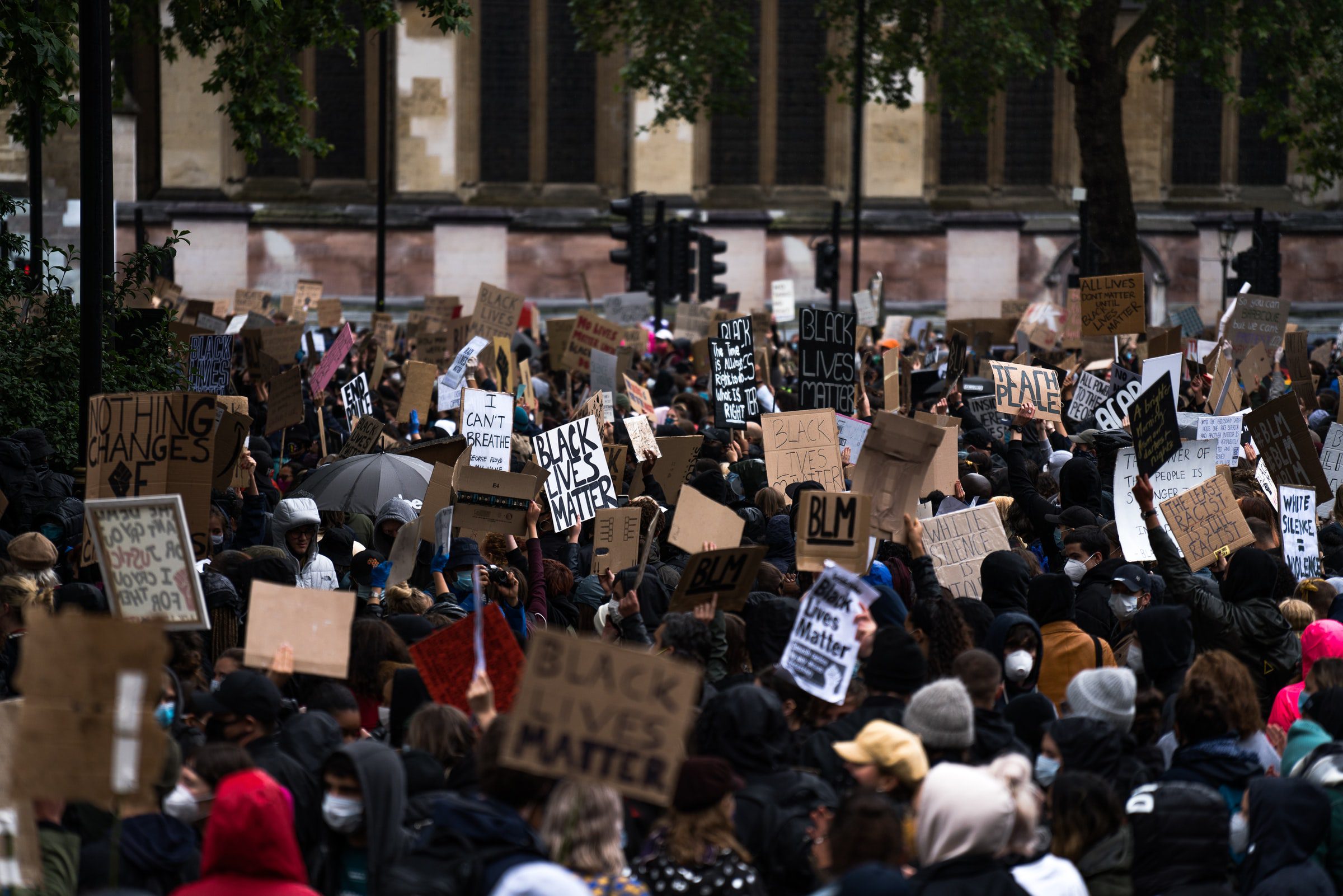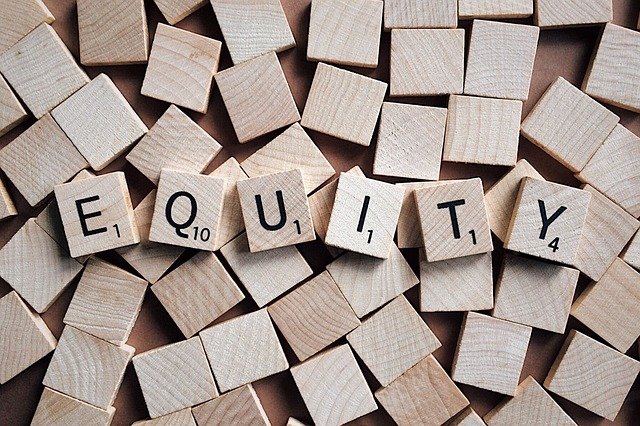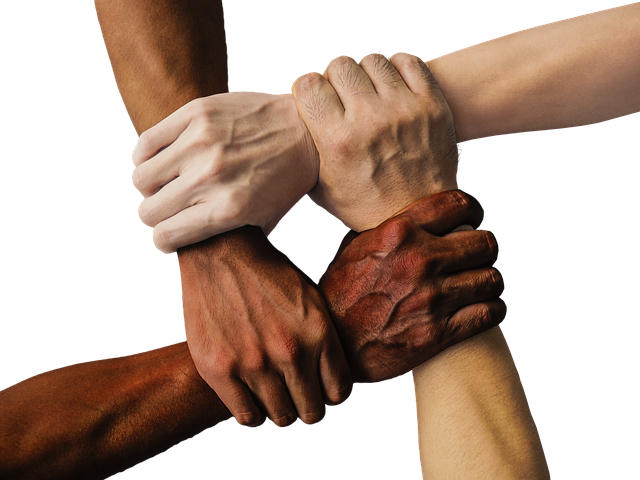
Aug. 27, 2021
Learn more about what racial equity means and other racial justice related terms. Including: What is the difference between racial equity and racial equality? Educate yourself about racial justice and get involved in empowering your community with United Way NCA.
What is the Difference between Racial Equity vs. Equality?
The pursuit of racial justice, like many social justice movements, can feel like facing a giant. However, despite the challenge, we can all do our part (big or small) to help make our communities more equitable and safer for everyone. One of the most crucial first steps to creating an equitable future is recognizing what it means, how it impacts you and your community, and your role in achieving it.
Although they are similar in a lot of ways, understanding the key differences between racial equity and equality is important to dismantling systemic racism and fostering a community that is inclusive for everyone. We’re here to break down the differences between racial equity and racial equality, explaining why the difference matters and showing how United Way NCA is creating a more equitable future for the National Capital Area.
What is the Definition of Racial Equity?
Racial equity is achieved when race no longer factors into or determines one’s socioeconomic outcomes. It is when everyone has what they need to thrive, no matter where they live or how they identify.
Working toward racial equity is one of the main pathways to achieving racial justice, which is the systematic fair treatment of people of all races that results in all people—regardless of their race, ethnicity or the community in which they live—having equal access to opportunities.
Though the ultimate goal of racial equity may be equality, the route to achieving equity cannot be accomplished simply through treating everyone equally. It is achieved by “treating everyone equitable, or justly according to their circumstances.”
What is the Difference between Racial Equity and Racial Equality?
Equity is different from equality. Equality serves everyone the same, regardless of need. Equity, on the other hand, achieves fairness by meeting people where they are and serving them differently dependent on their needs to achieve equitable outcomes.
In relation to race, equity is achieved when all people—especially people of color that have historically been oppressed and marginalized—are the “owners, planners and decision-makers in the systems that govern their lives and are provided the infrastructure needed to thrive.” Through racial equity, the needs of each community, group or individual are met and everyone benefits from a more just, equitable system.

What are Examples of Racial Equity?
Let’s analyze a couple examples of what racial equity looks like:
1) A network of school systems has a goal for students to attain proficiency to conduct online research in their class. Some of the network’s schools (A Schools) have a stronger IT infrastructure than others—greater bandwidth, more computers per student ratio, etc. Yet in the system’s B Schools, like in far too many around the country, the IT infrastructure is least robust and advanced, leaving students at a disadvantage. The B Schools also disproportionately serve students of color compared to A Schools.
The school system has received a grant to improve middle school IT infrastructures. Funding is distributed according to each school’s IT circumstances and the outcome is that students in B Schools now have the opportunity to perform along the same lines of students in A Schools, which they would not have had if funding had been distributed equally among the schools.
2) A city district has recently received funding designed to go toward infrastructure in their community and needs to decide on how to distribute resources. The southernmost parts of the district are predominantly middle-class white families and have recently undergone infrastructure developments on their main roads and parks. As you travel north, the neighborhoods are mainly lower-class racially and ethnically diverse families and have not had any major infrastructure development projects undertaken in their communities in over 10 years.
With equity in mind, the city district’s leaders conclude that most of the funding should go toward proposed infrastructure development projects for northern neighborhoods that haven’t had access to updates in over a decade, while the southern communities receive less than half of the funding because they recently underwent updates to their infrastructure and do not need extra funding to achieve the same infrastructure goals.
What is the Definition of Racial Equality?
Racial equality is serving everyone the same, no matter what their needs may be. While this may be the ultimate goal, it runs the risk of impeding the effort to close opportunity gaps and dismantling racial inequities when trying to achieve racial justice, because it does not take into consideration disparities in opportunities and resources across different communities. Racial equality can actually make inequities worse.
What are Examples of Racial Equality?
Taking the examples we shared above, let’s analyze them as scenarios where equality is the focus:
1) If the school system had opted for equal funding per school, the resource access between schools would remain disproportionate, racial gaps would remain and existing racial inequities would not be addressed because the A Schools already had greater IT resources than the B Schools before extra funding was provided.
2) If the city’s leaders chose to distribute resources equally between its neighborhoods and communities, those that historically haven’t had equal access to infrastructure upgrades would continue to be behind those who have consistent access to project funds. Therefore, the gaps and existing inequities between the white, middle-class neighborhoods and diverse, lower-class ones would remain and even become more disproportionate.
How is United Way NCA Improving Racial Equity?
United Way of the National Capital Area believes everyone deserves hope, respect and a fair chance. That’s why we’re creating a more equitable future for all community members by improving the region’s health, education and economic opportunity.
Our health programs increase equity in access to health resources that promote physical and mental wellbeing among students and families. We also work to reduce academic disparities and improve academic outcomes for young people in the National Capital Area by focusing on the education pipeline from middle school to college and/or career success. Finally, United Way NCA seeks to provide residents with economic opportunity and removing barriers to stable and affordable housing.

How Can You Practice and Promote Racial Equity and Equality in Your Community?
If you’re feeling discouraged, we’re here to tell you that you can take actionable steps right now to help practice and promote equity in your community, household, workplace, place of worship and other spheres of influence you are a part of.
Reflect on your own belief system. What implicit biases do you hold? How can you dismantle them? How can you educate yourself through books, media, diversity and inclusion seminars, etc. to understand equity further? Sign up for our 21 Day Race Equity Journey, a 21-day newsletter series, to learn more about unpacking how equity plays a role in determining outcomes of people through different stages of life depending on their intersections of race, gender, sexuality and/or socioeconomic standing.
Get involved! Reaching an equitable future for all community members necessitates action. By supporting nonprofits and programs like United Way NCA, you can make a difference. This can be done through monetary donations, corporate sponsorships of programs, volunteering, advocating and more.
This fall, United Way NCA will launch our Practice Equity campaign, in which we will share how community members can practice equity daily. Follow us on Facebook, Twitter, Instagram and LinkedIn to stay tuned.
Learn more about equity and how United Way NCA is achieving a more equitable future by visiting unitedwaynca.org/equity and join the movement!
When none are ignored, all will thrive.
About United Way of the National Capital Area
United Way of the National Capital Area improves the health, education and economic opportunity of every person in the National Capital community. United Way NCA has been improving lives by creating measurable impact in the District of Columbia, Northern Virginia, and Montgomery and Prince George’s counties for more than 45 years. In 2020, United Way NCA was among 384 organizations across the United States to receive a generous transformational investmentfrom novelist and venture philanthropist, MacKenzie Scott. For more information about United Way of the National Capital Area, visit UnitedWayNCA.org.




